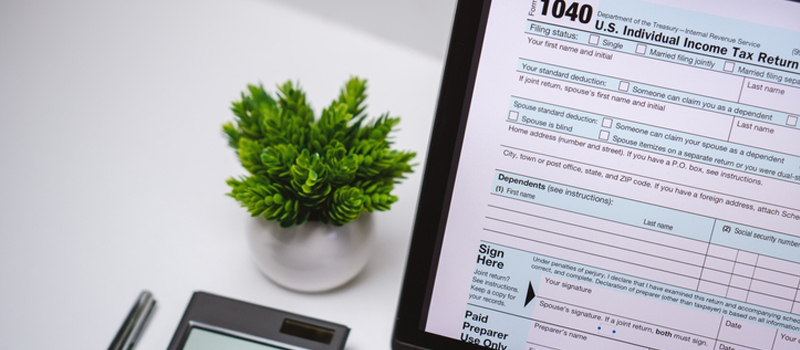Tax Tips
Tax Tips

Tax Tips
Taxes are a sure thing every year, and for many, filing season can be stressful. With some simple tips, however, you can reduce both your stress and possibly your tax liability. Here are some tax tips to help.
Organize Early
Whether you’re filing personal or business taxes, organize all documents early. File away any W-2s or 1099s promptly so they don’t get lost and prepare these promptly if you’re an employer sending them out.
You should also gather any mortgage statements, tax-advantaged investment account details, and other documents that your personal return might require. Make sure your books are in order if you're filing a Schedule C for a business.
Getting organized early helps prevent last-minute stress right before the deadline. It can also help ensure you needn’t file an extension just because you can’t find something.
Make Contributions
Your taxable income may be greatly reduced by making contributions to tax-advantaged accounts. These generally include IRAs, 401(k)s, 403(b)s, 529 plans, and HSA accounts, if you’re eligible. Eligibility requirements apply, and contribution limits usually change each year.
Alternatively, you may be better off making contributions to a Roth IRA or Roth 401(k). These won’t decrease your taxes this year, but any gains earned in the accounts are normally tax-free if withdrawn during retirement.
A certified public accountant (CPA) can help you evaluate which tax-advantaged accounts would be best for you to use.
Deduct Student Loan Interest
Student loan interest is deductible in most cases, at least up to $2,500. Unlike most deductions, you generally don’t need to itemize in order to take this one. Your loan administrator should send a year-end statement showing the amount of interest paid.
Write-Off Business Expenses
If you’re self-employed or run a business, make sure you write off all legitimate business expenses. These will reduce your taxable income, and thereby reducing your tax liability.
Some common business write-offs include:
- Building and equipment depreciation
- Home office (for home-based businesses)
- Business mileage or vehicle expenses
- Marketing, legal, and professional fees
- Business bank fees and interest payments
- Business insurance premiums
A qualified tax professional can review what business expenses you’re able to write off as deductions.
Review Your Business Insurance Premiums
If you run a business, being able to write off your business insurance premiums might influence what coverage and limits you choose. You may even be able to write off some homeowner's insurance premiums if you have a home office (check with a tax professional).
To review coverage and premiums for business insurance, get in touch with an agent who specializes in commercial policies. They’ll be able to help you select a policy based on both protections and cost. Find an agent near you for personalized assistance.
